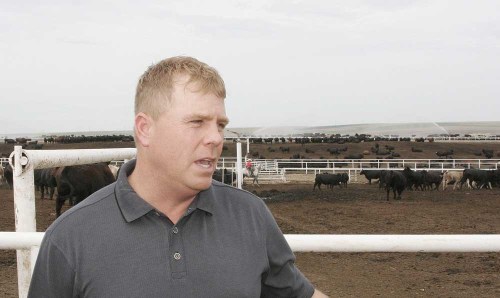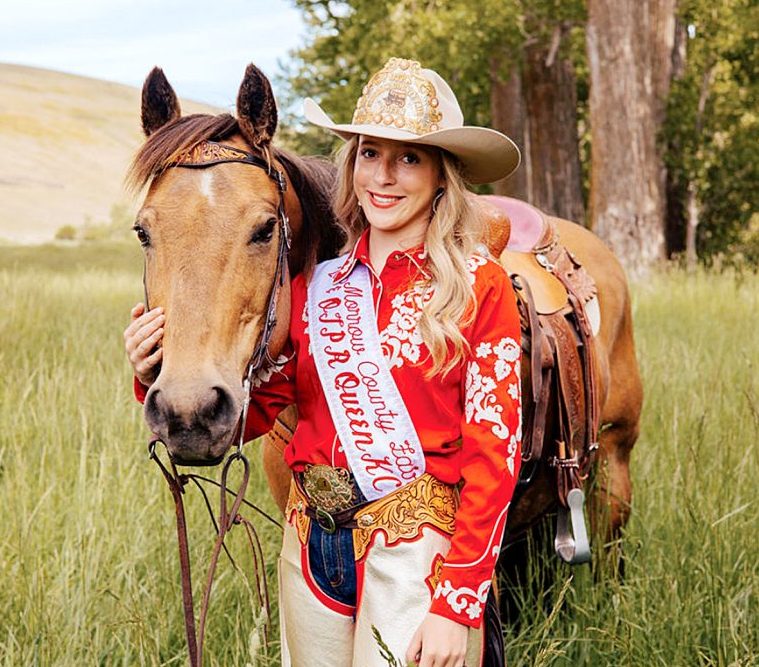Pre-sentencing briefs probe Easterday’s character, gambling addiction
Published 4:45 pm Wednesday, September 21, 2022
YAKIMA, Washington — U.S. attorneys commend Cody Easterday’s conduct since he admitted to fraud, but maintain that the size of his crime, $244 million, demands stiff punishment.
Easterday helped sell his family’s farming and ranching operations though bankruptcy court, raising money for his victims, U.S. attorneys acknowledge in a brief filed in U.S. District Court for Eastern Washington.
Trending
Easterday has repaid Tyson $62.4 million and his second victim, Segale Properties, $3.4 million and has pledged to somehow repay Tyson another $170 million and Segale $7.6 million.
The good conduct, however, doesn’t excuse his long-running scheme to bill his victims for cattle that didn’t exist, according to the Justice Department.
It won’t promote respect for the law for a “well-heeled defendant” who stole nearly one-quarter of a billion dollars to get a lighter sentence than a small-time crack cocaine dealer, prosecutors stated.
“The magnitude of Easterday’s fraud is so large, it is difficult to comprehend,” according to the department’s sentencing recommendation.
Easterday, 51, will be sentenced Oct. 4 by U.S. District Judge Stanley Bastian in Yakima, Wash. Easterday pleaded guilty last year to one count of wire fraud.
His sentencing was postponed while he helped liquidate his family’s extensive farming and cattle-feeding operations in the Columbia Basin.
Trending
U.S. attorneys are recommending a prison term of between 10 years, one month and 12 years, seven months. Easterday’s attorney, Carl Oreskovich, is seeking probation, lasting three years.
In calculating the sentence, prosecutors credited Easterday with taking responsibility for his crime, cutting four to six years off their recommended sentencing range.
Oreskovich argues that Easterday is a good man with a gambling addiction that ruined a business with annual revenues of $250 million.
Easterday gambled on the future price of commodities. Over five years, he lost more than $200 million, according to a brief submitted by Oreskovich.
His cell phone had a “winning bell” that altered him to a winning trade. He was unable to turn off the phone at night and “was consumed with commodities trading.”
As long as he occasionally won, he had hopes of recouping his losses, according to court records.
To cover the losses, Easterday billed Tyson for more cattle than he was delivering from his feedlot to Tyson’s beef plant in Pasco, Wash. U.S. attorneys put the number of “ghost cattle” at 265,995 over four years.
The second victim — identified in the criminal case as “Company 1,” but as Segale in bankruptcy court — advanced Easterday money to buy and raise cattle, with a guaranteed 4% return.
In a brief arguing for only probation, Oreskovich points out that Easterday kept records of the nonexistent cattle, marking them down in “Loc 99,” and intended to repay Tyson once he started winning bets.
Easterday “self-disclosed” his fraud to Tyson in 2020, his attorney stated. U.S. attorneys say Easterday “came clean” after Tyson began asking questions about the cattle.
Oreskovich has submitted letters from family, friends and associates attesting to Easterday’s character, compassion for his employees and contributions to his community.
Easterday’s personality traits — high energy, intense, ambitious, willingness to take risks — contributed to his gambling disorder, according to excerpts from medical reports.
The youngest of five children, Easterday was managing his parents’ farms by age 20. He grew the operation from 1,000 acres with four employees to 22,000 acres with 150 employees.
A high school coach wrote that the young Easterday had “grit.” A rancher who sold Easterday property said he had a “great reputation for being a handshake kind of guy.”
In a victim impact statement, Tyson stated the company trusted Easterday, and Easterday violated that trust.










